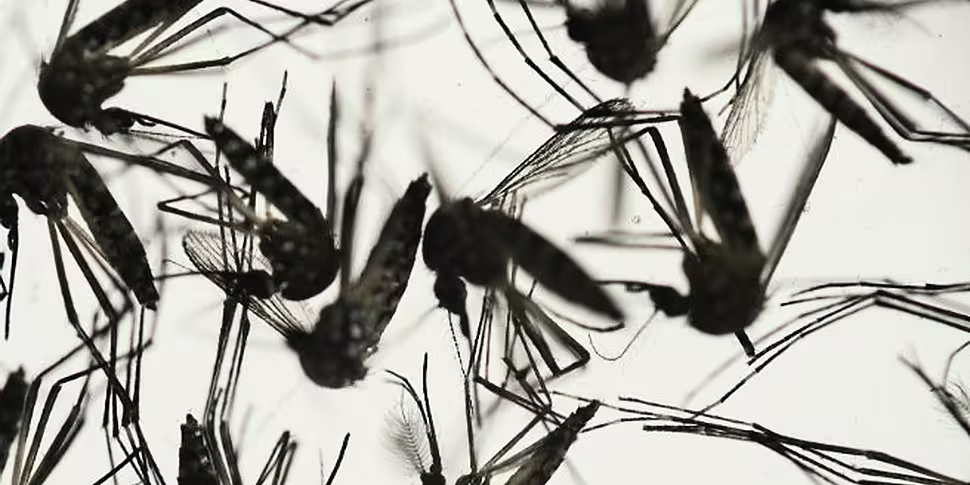The Zika virus could spread in every European country if the Aedes mosquito gets a foothold on the continent, the WHO has warned.
The World Health Organization's Europe chief said the risk of the virus spreading into Europe would increase in spring and summer when temperatures warm up.
It is most likely to spread beyond Latin America by mosquitos stowed away in baggage, or in the blood of travellers.
The Aedes mosquito is rarely found in Europe, but health experts say it could survive in hotter southern countries if reintroduced there.
However, the mosquito is established on Madeira, according to the European Centre for Disease Prevention and Control (ECDC).
It caused a dengue fever epidemic - some 2,000 cases - on the Portuguese island in late 2012.
Aedes has also been found recently in the Netherlands - thought to have been imported on a shipment of tyres, as well as on the northeastern Black Sea coast.
It comes after the HSE yesterday confirmed the first two cases of the virus in Ireland.
The man and woman, both adults, have made a full recovery. The cases are unrelated.
Both the man and woman had a history of travel to a Zika-affected country, and neither case is at risk of pregnancy.
In an official HSE statement regarding the Irish cases, the organisation says, "the finding of Zika cases in Ireland is not an unexpected event as many other European countries have reported cases as a result of travel to affected areas".
The virus results in a mild illness that typically lasts between two to seven days. The majority of infected people have no symptoms.
"If you become ill within two weeks after your return to Ireland from an affected area, you should contact your doctor for assessment and let him/her know of your recent travel history to an affected area," the HSE adds.
Speaking to Newstalk Breakfast, Health Editor with the Sunday Business Post Susan Mitchell explained the two people are believed to have travelled to the infected areas - presumably South or Central America.
"It's important to say this is not unexpected," she added. "The virus has already spread to neighbouring countries in the region, and there have been travel related cases in several countries - including the United States and the United Kingdom".
Yesterday, the Department of Foreign Affairs expanded a travel advisory to 32 countries and territories, over risks associated with the Zika virus.
US case
Meanwhile, health officials in Texas say they have diagnosed the first case of Zika contracted through sexual activity. In this case, the patient was infected after having sexual contact with someone who'd been to a country affected by the virus.
Dallas County Health and Human Services (DCHHS) said the Dallas patient acquired the virus from sexual contact with an ill individual who had returned from a country where Zika is present.
Health officials said last week that 31 people in the US have been diagnosed with the Zika infection in the past year.
But those infections are thought to have originated through travel to Latin America.
International health officials have been investigating the possibility that the virus can also spread through sex.
The virus has previously been found in a man's semen in Tahiti.
There was also a report that a Colorado researcher caught Zika overseas and transmitted it to his wife back home in 2008.
The World Health Organization (WHO) warned last week the virus is "spreading explosively" in the Americas.
Zika has been linked to a steep increase in the number of babies born with microcephaly, which causes abnormally small heads and brains.
Cases have so far been reported in 35 countries and territories, with Brazil among the worst affected.
Health officials have advised pregnant women to avoid travel to affected areas.
In several of the affected areas, including El Salvador and Colombia, women have been advised not to get pregnant altogether.
With the exception of the risks for unborn babies, Zika is not considered dangerous.
But there are no known vaccines, specific treatments or rapid diagnostic tests for the virus, something the WHO has highlighted as a particular concern.
The WHO has declared the outbreak an international emergency.









